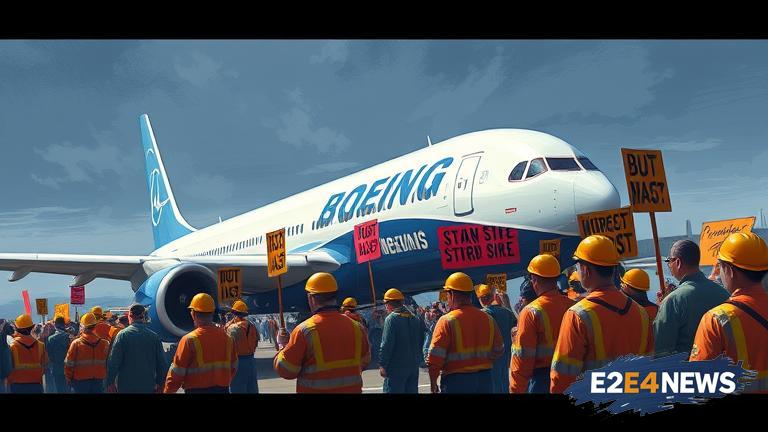A significant labor dispute has erupted at Boeing, one of the world’s largest aerospace companies, as over 3,000 workers have gone on strike after rejecting a contract deal proposed by the company. The strike, which began recently, is expected to have a substantial impact on Boeing’s operations and production. The workers, who are members of the International Association of Machinists and Aerospace Workers (IAM), had been negotiating with Boeing for several months to reach a new collective bargaining agreement. However, the union members overwhelmingly rejected the company’s final offer, citing concerns over wages, benefits, and job security. The strike affects several Boeing facilities, including those in the United States, and involves workers from various departments, including manufacturing, engineering, and quality control. The IAM has stated that the strike will continue until a fair and reasonable contract agreement is reached. Boeing has expressed disappointment over the strike, stating that it had made a comprehensive and competitive offer to the union. The company has also assured customers and suppliers that it is working to minimize the impact of the strike on its operations. The labor dispute has sparked concerns over the potential disruption to Boeing’s production schedule, particularly for its commercial aircraft programs. The strike has also raised questions about the company’s ability to meet its delivery commitments to customers. The IAM has emphasized that the strike is not just about wages and benefits but also about ensuring that Boeing treats its workers with respect and dignity. The union has accused Boeing of attempting to undermine the collective bargaining process and impose its own terms on the workers. Boeing has denied these allegations, stating that it is committed to working with the IAM to reach a mutually beneficial agreement. The strike has received support from other labor unions and worker organizations, which have expressed solidarity with the IAM and its members. The labor dispute has also sparked a wider debate about the state of labor relations in the aerospace industry and the need for companies to prioritize worker welfare and job security. As the strike continues, Boeing and the IAM are expected to engage in further negotiations to try to reach a resolution. The company has stated that it is willing to return to the bargaining table and work towards a fair and reasonable agreement. However, the IAM has emphasized that it will not compromise on its core demands, including improved wages, benefits, and job security. The strike has significant implications for Boeing’s business and operations, and the company will need to work quickly to resolve the dispute and minimize the impact on its customers and suppliers. The labor dispute has also highlighted the importance of collective bargaining and the need for companies to engage in good faith negotiations with their workers. As the situation continues to unfold, it remains to be seen how the strike will be resolved and what the long-term implications will be for Boeing and its workers.
